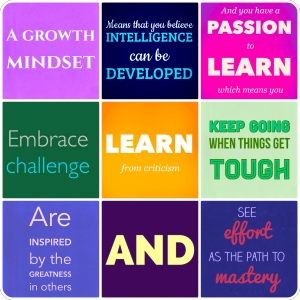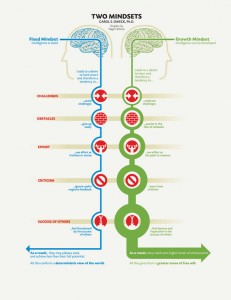 These days we hear a lot about Hungarian education. We often hear how the education system is inefficient at many levels, how low our pupils and students perform compared to other countries and how the situation is getting worse. There are concepts promising solution for this problem, but these concepts should be scrutinized by politicians. What is more, they require a huge amount of money, and education nowadays is rarely supported by so much money. At this stage any further arguments fall on deaf ears and people go on blaming the government. This is the group of people where I belonged until today, however, listening to a TED talk with Carol Dweck, a professor of psychology at Stanford University, I got the strange and unbelievable idea that we could do something concerning education.
These days we hear a lot about Hungarian education. We often hear how the education system is inefficient at many levels, how low our pupils and students perform compared to other countries and how the situation is getting worse. There are concepts promising solution for this problem, but these concepts should be scrutinized by politicians. What is more, they require a huge amount of money, and education nowadays is rarely supported by so much money. At this stage any further arguments fall on deaf ears and people go on blaming the government. This is the group of people where I belonged until today, however, listening to a TED talk with Carol Dweck, a professor of psychology at Stanford University, I got the strange and unbelievable idea that we could do something concerning education.
By we I do not mean our teachers, at least not primarily our university professors, but we the students. The answer for the question how is surprisingly simple: with growth mindset, that is, with believing that our abilities can be developed. Studies conducted by professor Carol Dweck show that students with a growth mindset are willing to engage in problems and with some effort, they manage to solve them, while the other type of students having a fixed mindset rest with the thought of failure. This might seem to be delusion at first, however, it is not only proven by research, but there are also examples of particular schools in Harlem, Bronx, and native American reservations which moved from the bottom of ranking lists to the top of them in maximum one and a half years due to teachers planting growth mindset in the children.
 Since our university is already at the top of ranking lists, given the former figures I firmly believe it could easily be the best university in Hungary. Its most promising feature is that it would not even cost the university any money. Instead, what is needed is us to become aware that failing an assignment at first does not equal to absolute incapability, and all we have to do is to switch to growth mindset, to try to succeed and do not give up. Similarly, failure at a class does not mean that we have ultimately failed, it just means we have something to improve in.
Since our university is already at the top of ranking lists, given the former figures I firmly believe it could easily be the best university in Hungary. Its most promising feature is that it would not even cost the university any money. Instead, what is needed is us to become aware that failing an assignment at first does not equal to absolute incapability, and all we have to do is to switch to growth mindset, to try to succeed and do not give up. Similarly, failure at a class does not mean that we have ultimately failed, it just means we have something to improve in.
There is an example where growth mindset has already helped our university, specifically the English Department: the Ruttkay Essay Competition. At the Department Eve it was revealed that for some reason, only a few students participated last year. After this event I have seen talented students considering applying for the competition but not actually deciding to do so until they received encouragement from teachers later on during the semester. Due to teachers’ reassurance, they feel capable now, and I would bet there are going to be more essays competing this year.
All things considered, I soundly believe that not only the English Department itself but our entire university could benefit from students with a growth mindset. As I have already pinpointed, although it is not our teachers’ duty to remind us that we are capable, encouraging us and appreciating improvement are still important virtues of our teachers. Given that, it is only us, who have to ask the question imposed in the preface of the talk with Carol Dweck I have already referred to: Are we not smart enough to deal with a problem, or have we just not solved it yet?
Sources:
- http://www.ted.com/talks/carol_dweck_the_power_of_believing_that_you_can_improve?language=en
- https://propagatevocab.files.wordpress.com/2015/01/growth-mindset.gif
- http://deeplearning.edublogs.org/files/2014/08/IMG_0860-2cmeq4g.png
- http://www.brainpickings.org/wp-content/uploads/2012/04/taschen_informationgraphics10.jpg
Related sites:
- Test your mindset! http://mindsetonline.com/
- Information on Carol S. Dweck and her work: https://web.stanford.edu/dept/psychology/cgi-bin/drupalm/cdweck
- Related to Carol S. Dweck’s book on mindset: http://www.brainpickings.org/2014/01/29/carol-dweck-mindset


